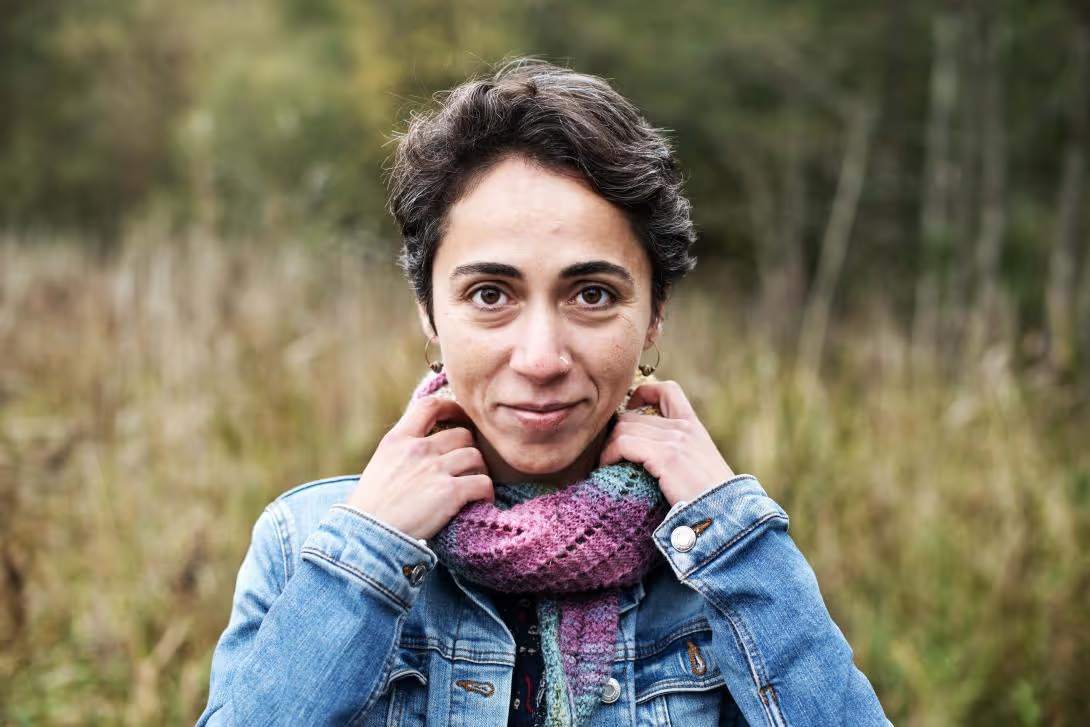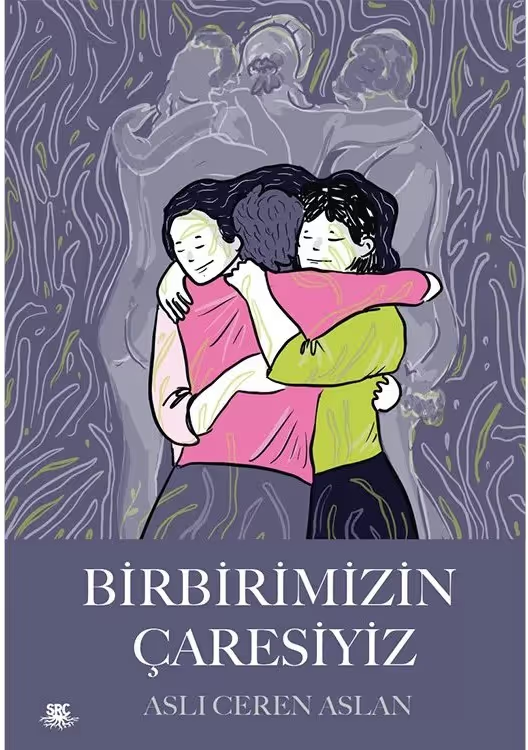‘We Are Each Other’s Remedy’: Aslı Ceren Aslan’s literary debut shines light on systemic injustice in Turkey

In her first novel, Birbirimizin Çaresiyiz (We Are Each Other’s Remedy), journalist, editor, activist, and now writer Aslı Ceren Aslan gives voice to women, LGBTQI+ and Kurdish people in Turkey in the face of systemic discrimination.
We Are Each Other’s Remedy (in Turkish: Birbirimizin Çaresiyiz) was published on November 11th, 2023, by the Turkish publisher SRC Kitap. The Swedish translation of the novel Bara vi själva kan rädda varandra, translated by Ulla Lundström, was published by Trolltrumma Förlag in Växjö and presented at the Kronoberg Bookfair on November 25th.
Inspired by those who remained kind to each other in defiance of the oppression suffered by many in Turkey, Aslan’s literary debut has been long in the making. Ceren’s own work as journalist, editor, and activist, and her own identity and personal experiences are also reflected in her first novel, hoping that readers from different backgrounds and countries will open for discussions.
We Are Each Other’s Remedy is set in the context of post-2015 Turkey which Aslı Ceren Aslan describes as a time of deprivation of rights and liberty. The book analyses the ways in which patriarchal and heteronormative systems affect the daily life of a variety of different people.

Aslan arrived in Växjö, Sweden, in the summer of 2022, and became the city’s fourth ICORN resident. By the end of the year, she was ready with the first draft of her debut novel.
Below is an interview with the author:
ICORN: Your book has been published in Turkey and will be published in Sweden soon, what are you hoping the two audiences to take away from it?
Aslı Ceren Aslan: Although gender inequality and homophobia do not have a harsh response in politics and life in Sweden as in Turkey, we know that Sweden is not detached from the patriarchal and heterosexist system. Patriarchy and heterosexism have a universal counterpart, and, in some countries, we see it in a harsher form, in others in a more softened form. For this reason, I want to create a question mark in the audience in both countries about how this is reflected in our lives. I think that these question marks are important especially for women and LGBTI+ people to share their experiences. Yes, my main expectation from the readers in both countries is that they can discuss the narratives in the book in their own lives.
On the other hand, readers in Sweden will undoubtedly find a lot in the book about how the policies in Turkey affect the lives of women, LGBTI+ and Kurdish communities. I think they will be able to better understand how our daily lives are affected by the increasingly harsh politics in Turkey, especially between 2015-2019, and what we experience in prison, at home, or on the street.
For the readers in Turkey, even the slightest contribution of the book is important for me in terms of creating an environment to read and understand our history from a women's and LGBTI+ perspective and to discuss how it affects our daily lives, including the days we are living in.
ICORN: The book combines the political and the personal- what impact did this have on the writing process?
Aslı Ceren Aslan: I think it is important for every woman and LGBTI+ to write with the motto ‘The personal is political’. Everything personal and social is inextricably linked. There is a famous African saying: ‘Unless the lions write their own stories, we have to listen to the stories of the hunters’. If we do not perpetuate our own history by writing it down, we will have to listen to distortions of our own history. For this reason, it is always important for me to write with the motto ‘The personal is political’.
On the other hand, I had the chance to reanalyse what I observed and experienced during the writing process. In the book, I describe not only the impact of the state or various institutions of the state on our lives, but also how we create gendered roles in our lives through various norms. Therefore, questioning the reasons that create the roles and stereotypes we adopt while writing has been a very developmental process for me.
During the writing process, I had many moments where I felt like I was reliving many of the things I encountered and experienced in Turkey between 2015 and 2019. I cannot deny the fact that this was psychologically challenging for me. However, writing has always been a healing thing for me. In addition, the peace and tranquillity of my current environment, Växjö, has helped me a lot. It was a great opportunity for me to walk for hours and collect my thoughts when I felt stuck and stressed. I am sure that if I had written this book in my conditions in Turkey, it would have been quite challenging for me.
However, I should also mention that I preferred to use humorous narration in the book. This was not a special preference on my part. I mean, I think that this is life itself. The reality of what we experience also has absurd aspects.
ICORN: What is the meaning behind the book’s title We Are Each Other’s Remedy?
Aslı Ceren Aslan: In fact, the phrase ‘We are each other's remedy’ is not a phrase I came up with, even though it corresponds to the creation process and content of the book. However, it belongs to a place that I have been a part of during my years of women's rights activism: the 8 March Feminist Night March, which has been traditionally held in Istanbul for almost twenty years and has been banned by the state for the last three years... A cardboard with this sentence written on it was carried by one of the women who took to the streets against the ban during the Feminist Night March in 2021. Realising what a vital reality this sentence I saw in a photo frame pointed to, I wrote it down in a corner of my brain. A year later, when I was choosing the name of this book, this sentence came out of the corner. For me, there could not be another book title that formulates the power to stand against the reality in which we all live in Turkey except this sentence. Once again, the solidarity of women and LGBTI+s with whom I have shared the same streets and avenues for years has been with me.
I think Birbirimizin Çaresiyiz shows the way to a solution for us. We are the remedy not only for those living in Turkey, but also for each other against the attacks of right-wing populism on our living spaces, which are on the rise all over the world.
ICORN: You started and completed the writing process in Växjö- what were the most challenging and the easiest aspects of writing a book from exile?
Aslı Ceren Aslan: As I mentioned above, it would have been quite challenging for me to write this book under my conditions in Turkey. As a matter of fact, writing Birbirimizin Çaresiyiz (We Are Each Other's Remedy) was something I had been thinking about and thinking about while I was in Turkey. However, I did not feel that I had the necessary energy for this. It was challenging to go back to the past while I was spending all my energy to overcome the weight of the process we were going through. Therefore, it was a great opportunity for me to write while I was in Växjö, in a safe and peaceful place. I was able to analyse my experiences more calmly, and I think I was able to write from a more objective point of view. I also saw more clearly the healing power of writing.
On the other hand, I honestly do not feel like I am in exile. Wherever I feel like I belong, where I am safe, where I can be a part of society, where I am not discriminated against and where I can produce is like my home. Anywhere I am in the opposite situation means ‘being in exile’ for me. I have been feeling like an exile in Turkey for a long time. Therefore, writing here has not been challenging for me.
You can read Aslı Ceren Aslan’s ICORN resident profile here.
The text was written in cooperation with Agneta Myrestam.



